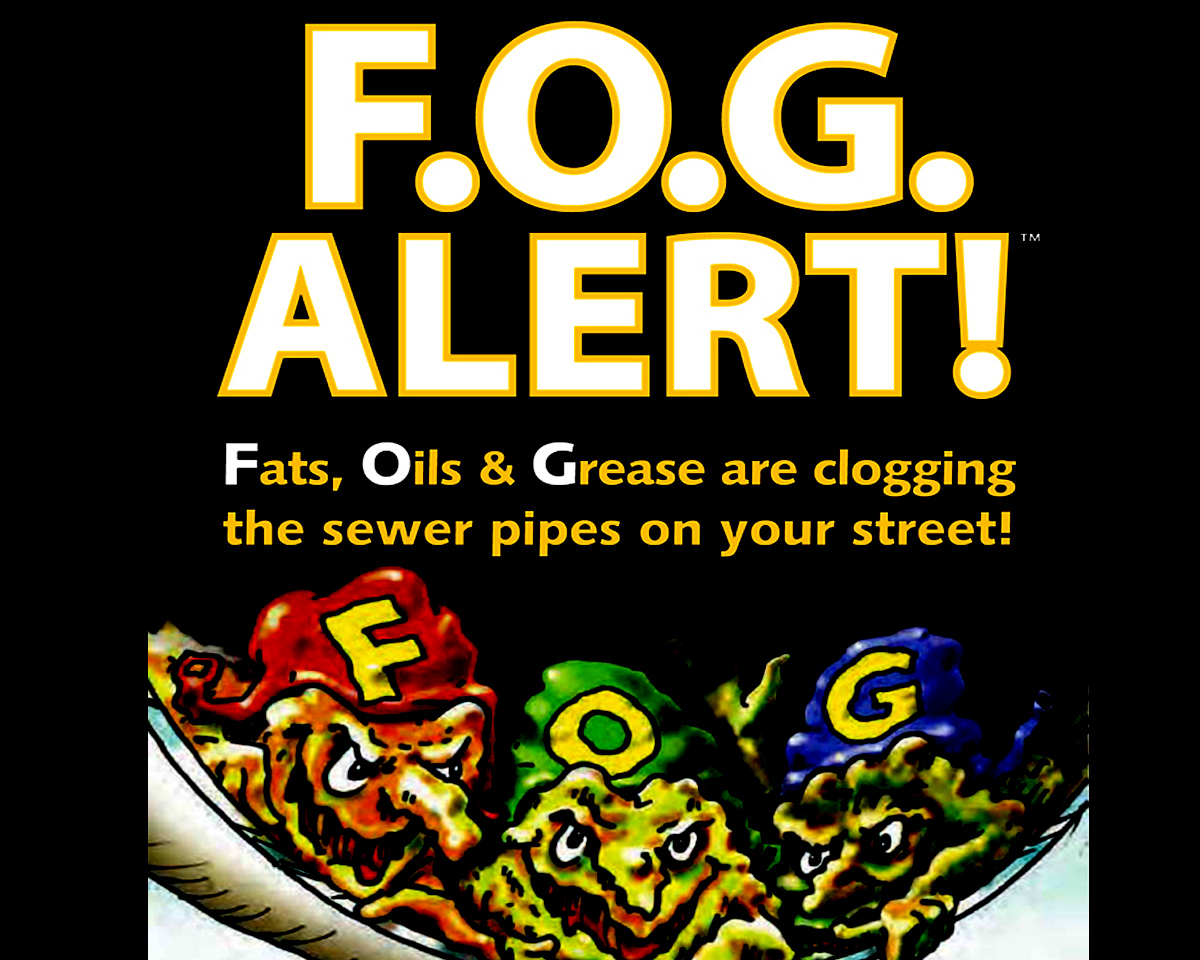
Fats, Oils & Grease Program (FOG)
Fats, oils and grease blockages in the community’s sewer system are serious, causing sewage spills, manhole overflows, or sewage backups in homes and businesses. Preventing the blockages saves money, keeps businesses open and protects public health.
The City has instituted a Fats, Oils & Grease (FOG) Management Program to help reduce the amount of these harmful food byproducts from entering the wastewater sewer.
These rules require commercial, industrial, and/or institutional facilities that prepare, process, package, and/or serve food to author a FOG Management Plan explaining how they will reduce such waste entering the sewer system using “Best Management Practices” and potentially install a grease interceptor (or grease trap) to help catch fats, oils and grease before it enters the utility.
This video from the City of Bend, Oregon, explains the issue:
- Adopted Fats, Oils & Grease Regulations (Chapter 13.33 FMC) – Adopted by the City Council October 7, 2013
- PowerPoint Presentation on FOG Program — (PDF Format) Presented to City Council January 2, 2013 and January 16, 2013
- FOG Management Plan Template (Fillable PDF)
- FOG Management Plan Example
- Best Management Practices Fact Sheet
- FOG Operations & Maintenance Log
- A Guide to Restaurant Grease Management
- Grease Removal/Cleaning/Hauling Service Providers
- Grease Recycling Service Providers
